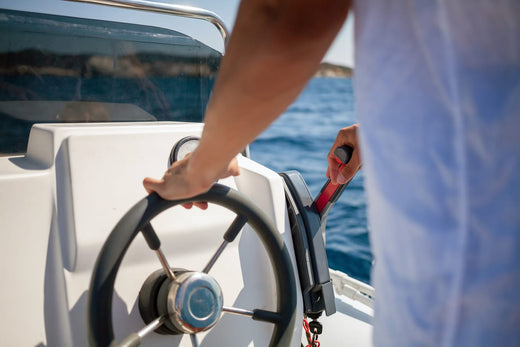
Navigating Legal Waters: Understanding Boat Licensing in the United States
Nicholas HeislerShare this article
Whether you're a seasoned sailor or a novice navigator, there's something undeniably captivating about taking to the open seas or tranquil lakes. But before you set sail, there's an essential question to address: Do you need a license to drive a boat?
In the United States, the regulations surrounding boat licensing vary from state to state, but there are some overarching principles and guidelines that all boating enthusiasts should be aware of to ensure they're navigating legal waters.
Do You Need a License to Drive a Boat?
The short answer is: it depends. Unlike driving a car, where a license is mandatory in all states, the requirements for operating a boat differ by state. Some states do indeed require a boating license or certificate, while others do not. Instead, they may mandate a safety course or simply require you to be of a certain age.
State Boating Regulations
To find out the specific boating regulations in your state, it's crucial to consult the appropriate authorities. Typically, your state's department of natural resources, wildlife, or boating authority will have all the information you need regarding boating licenses, safety courses, and age requirements. Here is a great resource for boating requirements by state.
Boating Age Requirements
Even if a boating license isn't required in your state, there may still be age restrictions for operating a boat. Minors, usually those under 16 or 18 years old, may need to complete a boating education course or be supervised by an adult who meets the necessary qualifications.
Boating Safety Courses
Even if your state doesn't mandate a boating license, completing a boating safety course is highly recommended. These courses cover essential topics such as navigation rules, safety equipment, emergency procedures, and the effects of alcohol and drugs on boating. Not only does this knowledge enhance your safety on the water, but it can also lead to insurance discounts and may be required if you plan to boat in other states.
Specialized Boating Licenses
For certain types of vessels or activities, such as commercial fishing or operating a boat for hire, specialized licenses or endorsements may be required. These often involve additional training and assessments to ensure competency in specific areas.
Federal Regulations
While most boating regulations are determined at the state level, there are some federal requirements that all boaters must adhere to. These include regulations regarding navigation lights, sound-producing devices, life jackets, and the prevention of marine pollution. It's essential to familiarize yourself with these federal regulations, as they contribute to the overall safety and preservation of our waterways.
Are You Prepared to Hit the Water?
While the specifics of boat licensing requirements may vary depending on where you live and how you plan to use your vessel, one thing remains constant: safety should always be a top priority. Whether you're cruising along the coast, fishing in a serene lake, or navigating bustling waterways, understanding and adhering to boating regulations is essential for a safe and enjoyable experience on the water.
So before you hoist the sails or rev the engine, take the time to educate yourself on the legal requirements and best practices for boating in your area. With the right knowledge and preparation, you'll be ready to embark on unforgettable aquatic adventures while staying on the right side of the law. Happy boating!
When it comes to keeping your boat clean, look to Captains Preferred Products boat cleaning supplies. Find everything you need to keep your vessel squeaky clean all season - always at the best prices.









